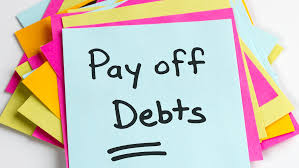HOW TO PAY OFF DEBT
Paying off debt effectively requires a structured approach, discipline, and a clear understanding of your financial situation. Start by assessing your total debt, including the amount owed, interest rates, and monthly payments for each account. This overview helps prioritize which debts to tackle first, typically focusing on high-interest debt like credit cards. One popular strategy is the **avalanche method**, where you prioritize paying off debts with the highest interest rates first while making minimum payments on others. This approach reduces the total interest paid over time and accelerates debt repayment. Alternatively, the **snowball method** involves paying off the smallest debts first. By eliminating smaller debts quickly, you gain momentum and motivation, which can be helpful in staying committed to your plan.
Once you have chosen a repayment strategy, create a detailed budget to track your income and expenses. Identify areas where you can cut back and redirect those savings towards your debt. This budget should include a plan for reducing discretionary spending, such as dining out or subscription services, and increasing your income through side jobs or freelance work. Allocating any extra funds towards debt repayment can significantly speed up the process.
Consider negotiating with creditors to potentially reduce interest rates or consolidate debts. Many credit card companies are willing to lower interest rates or offer more manageable payment plans, especially if you have a good payment history. Debt consolidation involves taking out a new loan to pay off multiple debts, often at a lower interest rate. This can simplify your payments and potentially reduce your monthly outgoings, though it's important to ensure that the new loan terms are favorable and that you avoid accumulating more debt.
Another effective tool is a **debt management plan** (DMP), which involves working with a credit counseling agency to create a plan to pay off debt over a fixed period. The agency negotiates with creditors on your behalf to lower interest rates and consolidate payments. While a DMP can be beneficial, it typically requires a commitment to monthly payments and may affect your credit score.
Maintaining a strong focus on your financial goals is crucial. Track your progress regularly and adjust your budget or repayment strategies as needed. Celebrate milestones, such as paying off a significant portion of your debt, to stay motivated. Building an emergency fund can also prevent you from falling back into debt in case of unexpected expenses. Aim to save a small amount each month to gradually build a financial cushion that can cover unforeseen costs without resorting to credit cards or loans.
Educate yourself about personal finance and debt management to avoid future pitfalls. Understanding the terms of your debt, such as interest rates, payment schedules, and potential penalties, can help you make informed decisions. Resources such as books, online courses, and financial advisors can provide valuable insights and strategies for managing and avoiding debt.
It’s also important to address any underlying habits or behaviors that led to debt accumulation. This might involve adjusting your spending habits, improving financial literacy, or seeking professional help for issues like compulsive spending. Addressing these root causes ensures that you not only pay off your debt but also avoid falling back into similar financial challenges in the future.
Maintaining open communication with creditors and seeking assistance from financial professionals can also provide support throughout the debt repayment process. Financial advisors or credit counselors can offer tailored advice and strategies based on your specific situation, helping you navigate complex financial decisions and stay on track with your repayment goals.
In summary, paying off debt involves assessing your financial situation, choosing a repayment strategy, creating a budget, negotiating with creditors, and considering debt consolidation or management plans. Adopting disciplined spending habits, building an emergency fund, and educating yourself about personal finance are essential steps in achieving and maintaining financial stability. Regularly tracking your progress, celebrating achievements, and addressing any underlying issues are key to successfully eliminating debt and preventing future financial challenges. By approaching debt repayment with a structured plan and a commitment to financial education, you can effectively manage and overcome debt, paving the way for a more secure financial future.
